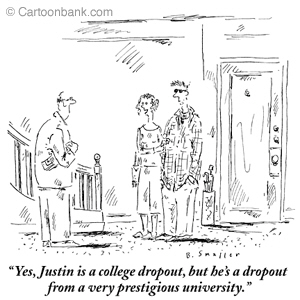 I’m a Gen Y job seeker. Unemployment data tells me I’m not the only one. A recent Pew study shows that 37% of 18-29 year olds are out of work! But the career and networking events I go to tell a different story.
I’m a Gen Y job seeker. Unemployment data tells me I’m not the only one. A recent Pew study shows that 37% of 18-29 year olds are out of work! But the career and networking events I go to tell a different story.
Networking, networking, networking. We’ve all heard endless times how it’s the best way to get a job.
So I get out there. I go to mixers, seminars, and job search support groups. And no matter the venue, I notice one thing in common among all these events. With the exception of events targeted to young professionals, I’m often the youngest person in the room.
I know I can’t be the only twenty-something out of work in my area. So where is everyone?
I admit the first time I went to one of those events, it was intimidating. Like attracts like. I’m immediately drawn to others who are young like me, assuming that our common age will give us other interests in common. How can people from a different generation understand me and my job search?
Being the only Gen Y in a situation makes me stand out and that’s OK.
My confidence and conversation skills have skyrocketed during this job-search process. I don’t have time to worry, “Will they like me? What do I have to say?” Instead, I walk up to strangers 10, 20, or even 30 years older than myself and say, “Hi, I’m Danielle. How are you?”
That’s the thing about a crappy economy. It puts Gen Y, Gen X, Boomers, and everyone in between on equal footing. There’s no hierarchy of age. It’s all about knowledge and contacts.
Just because I’m young doesn’t mean that I haven’t gathered a large database of contacts that I’d be willing to share. And just because someone is older doesn’t mean they don’t have their finger on the pulse of my generation.
Sometimes there’s more value in talking to people who aren’t like you. Expanding your circle to include people with different careers, of different ages and backgrounds, can yield unexpected results. Some of the older workers I’ve met now serve as mentors for my job-search journey.
If my presence at career events has done anything to reduce the negative stereotype that Gen Y workers expect everything to be handed to them, then I’m grateful. It takes hard work to find a new job. I know I’m not the only person my age willing to put in the effort expanding our networks. So, I ask again: Where is everyone?
Danielle Bullen is a marketing professional and writer from the greater Philadelphia area. You can read her writing, connect with her on LinkedIn and follow her on Twitter @daniellewriter.















